Text
Redefining My Bullet Journal System
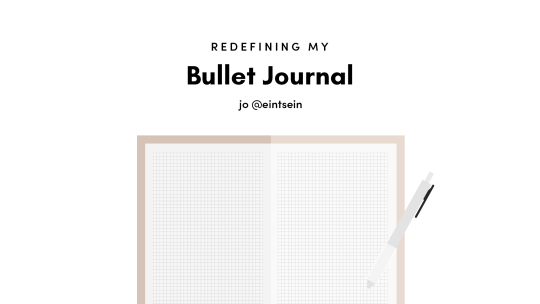
The bullet journal is probably something you’re no stranger to. It’s been circulating around the internet for a while, and it’s one of the main subjects of studyblr posts. However, when I started college last semester, I found that I no longer relied on my bullet journal to organize my tasks and structure my responsibilities anymore. Instead, I tried out a bunch of productivity/task-organization apps: Taskade, Actions by Moleskine, Any.do, Todoist, Wunderlist. None of them seemed to have what I needed, so I decided to give the bullet journal method another try.
The first thing I reflected on was why I stopped in the first place. At first I thought it was because the method itself allowed for a lot of freedom and I’d get confused as to what things to include and how to structure everything. But then I realized that it was in fact because I had previously been bullet journaling for other people instead of myself. Since I had what one could call an ‘artsy bullet journal’, I tended to focus more on the artistic aspect so that it would get more likes and reblogs after I posted it, when I should have been focusing on how it can organize my life. I realized that the bullet journal is a tool; the focus should be on life itself, not the bullet journal, but you can use the bullet journal to add value to your life.
At the beginning of the year, I deconstructed my organizational needs and attempted to apply that to my bullet journal method. I stopped looking at other people’s bullet journals and started thinking about my own needs and preferences. I thought about how I would best organize my time so that I could accomplish all of the things I want to accomplish in the different aspects of my life.
Supplies
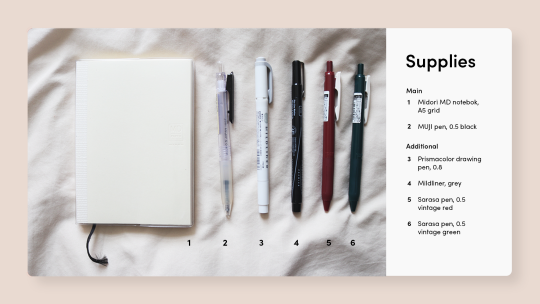
The fact that I only have 2 main supplies allows me to bullet journal anywhere, anytime.
The Structure
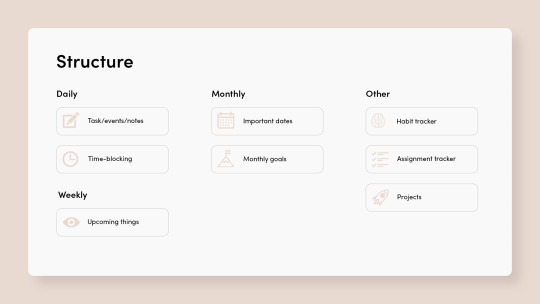
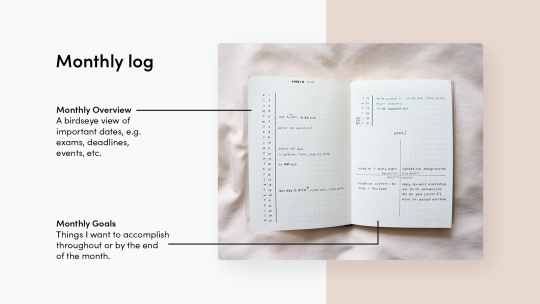


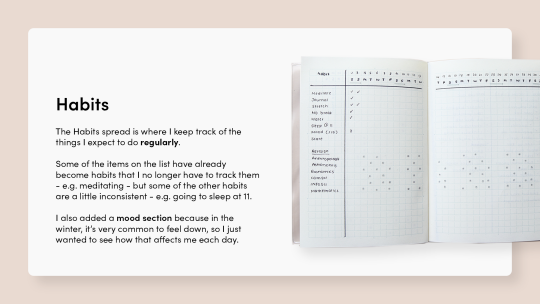
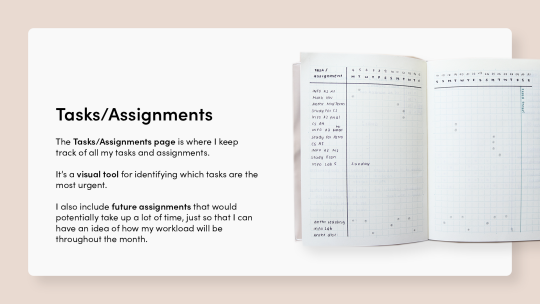

The Practice
Simply having the tool to organize your life isn’t enough - you should also have a practice, a habit, for using it.
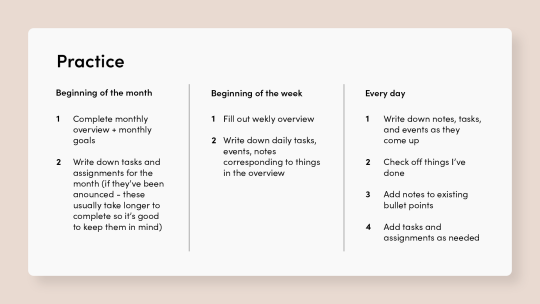
Going Forward
One thing I’d like to work on is future logging. As of now, I think in terms of months, since the my main commitment at the moment is my education, and monthly planning has worked out for me. But I think if I’d like to tackle on larger projects - e.g. my YouTube channel that I just started - I’d need to do a lot more future logging.
Another useful thing I want to try out is to summarize my journal entries in the form of notes. Recently I’ve been audio journaling (15-20 minutes of me talking to myself), and it’s been pretty effective. However, I have no way of ‘skimming’ the entries like I would a written journal entry. Summarizing them would help me retain main ideas of each entry and remember the things I said that are or could potentially be important and useful.
Final Thoughts
If you don’t think your bullet journal is adding value to or improving productivity and organization in your life, I think you should reconsider the way you’re approaching the system. I found a method that works for me; yours might be different. While it can be beneficial to draw inspiration from other people, do whatever helps you the most, not what other people tell you you should be doing. After coming up with an appropriate structure, make sure you maintain the practice.
11K notes
·
View notes
Text
not so much study tips, more thoughts on university/studying in general
although these posts are abundant, i like to have my own collection of study tips/uni thoughts
- i’ve been viewing my studies as an office job, mostly because of the 9 to 5 mentality. i am not one for night studying, i have tried and tried and felt guilty when i heard others talk about their late night study sessions, but it is just not for me. which is fine, because with this 9 to 5 idea i have created working days for myself and i can use my evenings for extracurriculars, books, friends, netflix
- the train has (weirdly) become one of my favourite study spots. of course this really depends on the public transport you use. i am on a train for two hours a day, no transfer, and i either go to a silent area (have not yet seen this elsewhere, but dutch trains have carriages in which there is complete silence) or i put in my earpods. i love this because when i come home, i have already done so much work, e.g. organized my lecture notes of that day, inserted my professor’s comments into my paper etcetera
- although i’ve also learned to recognize when i am just done. sometimes i have had enough and it is way better to accept that and then i either listen to some music and stare at the passing landscape, or i watch an episode of the crown. when feeling exhausted, there’s no point in pushing and forcing yourself
- this goes for many many aspects: comparison will kill you. it is often still my tendency to compare myself to others on all levels - grades, kindness, clothing, weight, work ethic - but i make the effort to not ‘indulge’ in it. what my therapist told me has really helped: just notice that the urge to compare is there but then leave it be. like it’s a tiny spider crawling on your leg; you don’t have to do something with it
- on the topic of work ethic: don’t listen to your fellow students. don’t listen to what some wonderful academic says (online). don’t even listen to what your professors say regarding study hours. it has often made me feel very uncertain, but i think it is way better to figure it out yourself. to build up a feeling of trust towards yourself, so you can really start to notice, to feel, when you have done enough. that is something only you should be able to judge and not some external source
- sometimes i get overwhelmed with this sensation that i have not done enough, that i am lazy and have accomplished nothing. however, every (every!) time i have noticed this to be untrue. so perhaps i have not studied every chapter, but i have studied other chapters. i found the cliché of looking at what you have done to really be true. it helps me put things into perspective, i think we can really underestimate ourselves in how much work we have done. what you consider to be 20% may actually be 60%
- motivating internal monologues are completely normal and actually very good! give yourself that motivating speech, it’s like a snow track that becomes deeper and clearer everytime you repeat it
it helps me to look back on these at times, has been in my concepts for a while now (like some kind of motivating internal monologue) but i want this to have a place on my actual blog, because i believe tips like these (less focused on studying and more on coping with the whole world of studying/academia) are important as well
3K notes
·
View notes
Text
I cannot stress this enough- Build a routine. Build Habits. Wake up every day and get used to being productive, one day at a time. Do this for long enough and eventually you’ll be at your goal without even realising it.
209K notes
·
View notes
Photo


[10.21.18] 57/100 days of productivity
It’s a beautiful autumn day outside - perfect for drinking tea at home and re-reading my favorite novel.
2K notes
·
View notes
Text

17 Novemer 2018 // Saturday evening
Finally walked out of the library. This is my after study picture. I didn‘t manage to do everything I wanted to but still felt kind of productive.
How have your days been?
173 notes
·
View notes
Photo

A compilation of chrome extensions and iOS + Android apps (some are paid and some are free) °☆.。.:*・°☆
| For your computer |
fliqlo
momentum
lanes
clarity
embark
minimal clock
infinity
currently
polar clock
caffeine
f.lux
be limitless
leoh
dream afar
| For your note taking |
evernote
onenote
simplenote
somnote
iNotes
notability
notes plus
google keep
quip
inkflow visual notebook
jot
good notes
noteshelf
| For your to-do lists |
wunderlist
moo.do
todoist
habitica
trello
any.do
priority matrix
do
glass planner
swipes
timetune
| For your planners + calendars |
myStudyLife
myHomework
sunrise calendar
google calendar
plan
sol calendar
| For your timing + focus |
tide
forest
pomotodo
flat tomato
pomello
pomodrone
clearfocus
tomato timer
30/30
focusnow
tasks and measures
self control
stayfocusd
timewarp
cold turkey
atimelogger
writer’s block
| For your presentations |
prezi
powerpoint
emaze
raw shorts
powtoon
| For your storage |
google drive
dropbox
| For your mindmaps + diagrams |
mindmeister
lucidchart
goconqr
gliffy
google drawings
| For your tests + flashcards |
goconqr
quizlet
flashcards+
anki
| For your writings |
zotero
grammarly
hemingway
| For your health |
fabulous
plant nanny
safetrek
sleep bot
sleep better
to bed
nike + running
waterlogged
period tracker
weight loss coach
health mapper
medisafe
| For your inner peace |
stop, breathe & think
headspace
pacifica
noisli
sleepio
infinite storm
relax melodies
calm
sam
thunderspace
mindshift
taomix
i am
pillow
binaural
55K notes
·
View notes
Text
i think it’s important to realize that no matter how good you are to people, it won’t make them good to you.
118K notes
·
View notes
Text
how to study anything, really:
1. read up, learn more about this particular subject/topic/skill
2. practice, practice, practice !!!
3. scream
4. cry
5. repeat steps 2-4 until you’re good at said subject/topic/skill
6. congrats you’re now a smarty pants
4K notes
·
View notes
Text
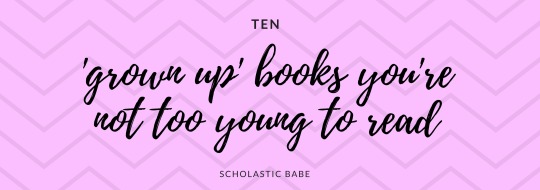
If you’re on the verge of adulthood and you feel like you have no idea what ‘adulting’ is, you might want to check out some of these books. Here’s a list of some daunting “grown up” books that range from self help to finance:
Rich dad poor dad- I had to start with a personal finance book because lets face it, us millennials have no idea where to start with personal finances. This book was written quiet a while ago but its still relevant and easy to read. I read this book when I was 15 and I still re-read it every year to freshen up. It does a great job of introducing you to the relationship you’ll want to have with your money
The life changing magic of tidying up- One of my all time favorites! (it pleases my inner Monica Geller) if you want to go into adulthood having a healthy relationship with the objects you buy, this is the one for you. Marie Kondo has a wealth of knowledge on efficient cleaning/ tidying methods that actually make a huge difference in helping you maintain a clear mind and a happy living space.
The 48 laws of power- ‘nuff said. Learning how powerful people work doesn’t necessarily mean you have to employ these tactics, but it’s important to recognize them when they’re being used on you.
Girl Boss- This one is popular for a reason; if you wanna know to grow a business with little capital on the internet, this is your go to. A great read, regardless if you wanna go into business or not.
5 Love languages- Another popular one. This book will help you understand communication in relationships (not just romantic ones). You can never go wrong with learning how to effectively communicate your love to the people most important to you.
Come as You Are: The Surprising New Science that Will Transform Your Sex Life- A book about female sexuality; A super insightful read regardless if you’re sexually active or not.
Freakonomics- Literally one of the most interesting books ever created. If you’re an econ geek like me or just wanna know the hidden economics of how the world works, this will be a good read for you. This is one of those books that you can never unread.
How to win friends and influence people- Similar to the 48 laws of power but with its own twist. This teaches you how to navigate the tricky world of making fiends or networking.
The Telomere Effect: A Revolutionary Approach to Living Younger, Healthier, Longer- A sciency approach to health and wellness. A perfect read to get informed about your health.
Emotional Intelligence: Why It Can Matter More Than IQ- Emotional health is just as important physical health. You’re never too young to tend to your emotional well being and this book is just the place to start.
Ok, so that’s my round up of ‘grown up’ books. I hope you enjoyed and that this helped you to realize that books about life and self improvement are not just for adults. You can prepare for the life you want, you don’t have to wait for it.
9K notes
·
View notes












